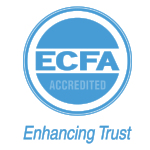What is an Indigenous Missionary?
From a Christian perspective, a missionary is a Christian on a mission to share the love of God and the Good News of Jesus Christ with other people. Some people associate the term “missionary” with a person sharing God’s love in another culture. This is not required by the Bible.
Worldlink uses the terms indigenous missionary, native missionary, and local missionary to help define our international partners. They are missionaries to the land in which they live.
What Benefits Do Indigenous Missionaries Have?
Because they are “native” to the places they serve, there are numerous significant advantages they have over a traditional Western missionary.
Indigenous missionaries are often more effective than their Western counterparts because they have no language, culture, travel, or lifestyle barriers to overcome.
Indigenous missionaries can travel in closed countries that cannot be reached by Western missionaries.
Indigenous missionaries do not need to leave the “mission field” for long periods of rest or to raise support back home – since they are already home!
Indigenous missionaries do not abandon the work when regional conflicts arise (check out the Blog for a great example of this)
Indigenous missionaries are also highly cost-effective. While the typical Western missionary costs an average of $45,000 a year to support, an indigenous missionary can be fully supported for as little as $300 to $2,000 a year.
Where are Worldlink’s Indigenous Missionary Partners Located?
Simply put, our partners serve in areas with the “Greatest Need and Least Access”. Philosophically, our partnerships focus on areas where the local population is unreached or less reached with the Good News.
Geographically, this currently includes the following countries:
Central America and the Caribbean
Belize Chile Colombia
Cuba
Dominican Republic
El Salvador
Guatemala
Haiti Mexico Nicaragua Venezuela
Sub-Saharan Africa
Benin
Burundi
Burkina Faso
Cameroon
Tchad
Congo
Democratic Republic of the Congo
Eswatini Ethiopia Gambia
Ghana Guinea-Bissau Ivory Coast
Kenya
Lesotho
Liberia
Malawi
Mali
Mauritius
Mauritania
Mozambique
Nigeria
Rwanda
Senegal
Sierra Leone Somalia
South Africa
South Sudan Sudan
Tanzania
Togo
Uganda
Zambia
Zimbabwe
Asia and the Pacific
Bangladesh
Bhutan
Cambodia
India
Indonesia
Laos
Myanmar
Nepal
Pakistan
Sri Lanka
Vietnam
Central Asia Kyrgzstan
Europe
Scotland
How Does Worldlink Find Its Indigenous Partners?
Through long-standing ministry relationships with indigenous Christian leaders in the developing world, Worldlink has been able to construct reliable webs of relationships that allow us to connect with Christian workers of high character and giftedness for ministry.
A thorough process of evaluation including independent references is undertaken prior to accepting anyone for partnership.
Many of our relationships began with Jack Nelson, our President, and contacts from his decade of service with an international ministry organization.
What are the Major Needs of Indigenous Missionaries?
For those called to reach their countrymen and women, the needs are wide and varied. Worldlink seeks to provide whatever is needed to overcome barriers to their effective witness. This support may include:
Salary support or supplement
Training and sharing best practices
Strategic planning assistance
Equipment
Pastoral encouragement
Prayer support (It’s often a lonely road for these faithful servants, living in an area with little or no Christian presence. Our partners know that a team from around the world is supporting them in prayer and available to encourage them.)
Typically, this is a small amount of money for a full-time salary (freeing them from the daily concern of feeding and sheltering themselves and their families). It also includes helping with additional training. Our networks allow us to connect national Christian workers with opportunities for help with things such as
Evangelism of Muslim, Hindu, or Animist people
Local fundraising
Educational opportunities when opposing forces deny them – especially help with biblical and doctrinal education
Equipment for more effective ministry
For travel needs - bicycles, or motorbikes, bus fare, etc...
Why is Worldlink a Good Option for Supporting Indigenous Missionaries? To Whom is Worldlink Accountable?
Worldlink is committed to “taking pains to do what is right, not only in the eyes of the Lord but also in the eyes of men.” (2 Corinthians 8:21)
Worldlink is led by an independent Board of Directors. The Board Treasurer does an on-site financial review each month. This includes a review of monthly bank reconciliation reports and outgoing missionary support. The treasurer also performs spot audits of income and expense accounts.
Classified by the United States Internal Revenue Service (IRS) as a non-profit 501(c) 3 organization, Worldlink is accountable to both Pennsylvania State and US Federal regulations governing the proper use of donated funds.
We are also a member in good standing with the Evangelical Council for Financial Accountability, and abide by their Seven Standards of Responsible Stewardship.
Every year an independent accounting firm audits our financial records. These audits are available for public inspection at our office, which is located at 700 American Avenue, Suite 202, King of Prussia, PA 19406. (Please call 610.630.3775 for an appointment.)
How Much does Worldlink Withhold from Funds Donated to International Partners?
Nothing. (That is 0%)
From its inception, Worldlink has been committed to sending 100% of money received for international partners to our international partners. This has been and will continue to be our faithful practice.
Home team staff compensation and operating expenses are raised independently of missionary support.
How are the Indigenous Missionary Partners Held Accountable?
We agree with an Indian friend who said that accountability is “not a ‘western’ thing, not an ‘eastern’ thing, but a Jesus thing.” Consequently, we expect our partners to regularly inform us about three areas of their life, following the example of the Apostle Paul:
“Tychicus, the dear brother and faithful servant in the Lord, will tell you everything, so that you may know how I am and what I am doing. I am sending him to you for this very purpose, that you may know how we are and that he may encourage you.” (Ephesians 6:21-22)
…they sailed back to Antioch where they had been committed to the grace of God for the work they had now completed. On arriving there, they gathered the church together and reported all that God had done through them and how he had opened the door of faith to the Gentiles. (Acts 14:26-27)
Our international accountability structure includes:
Quarterly reports based on the topics mentioned above.
Occasional site visits by regional leadership staff
Site visits by Worldlink US or UK staff
Review by local contacts
Significant pre-partnership analysis, prayer and research (getting the right people and commitments at the start means better relationships down the road)
Partnerships are like a marriage if you keep your eyes open beforehand and both sides are committed to Jesus, there is less likelihood of failure, difficulty and conflict.
How does Worldlink Address the Problem of Dependency?
First, by acknowledging that we are all dependent on something or someone. Every right-minded Christian will acknowledge we are dependent on God. The question is not whether or not we, our indigenous missionary partners, or anyone else is dependent, but rather “upon who or what are we dependent?”
Worldlink’s international partners, as well as our staff, look to God rather than people for sustenance. We are constantly watching our interactions to make sure we support their ministry goals rather than dictate Western solutions to local concerns.
It is popular to talk about the “three-selfs” in the global church:
Self-governing
Self-propagating
Self-supporting
Worldlink believes that when the first two are true and healthy, the third is not much of an issue.
How Can I Help Worldlink and Its Indigenous Missionary Partners?
Pray without ceasing. Use the monthly Prayerlink as your guide.
Be extravagantly generous in your donations. The opportunities we have to reach people for Christ far outpace the funds that we currently have. If you are led, any generous gifts would be incredibly helpful. Click here to support an Indigenous Missionary. (Remember that 100% of funds sent for Indigenous Missionaries go to that missionary).
Become a Worldlink advocate. If you agree with what you've read about Worldlink, pass it along. Tell others of the amazing things God is doing and the amazing ways they can join you and make an immediate and eternal difference in the lives of people in some of the world's hardest places.


